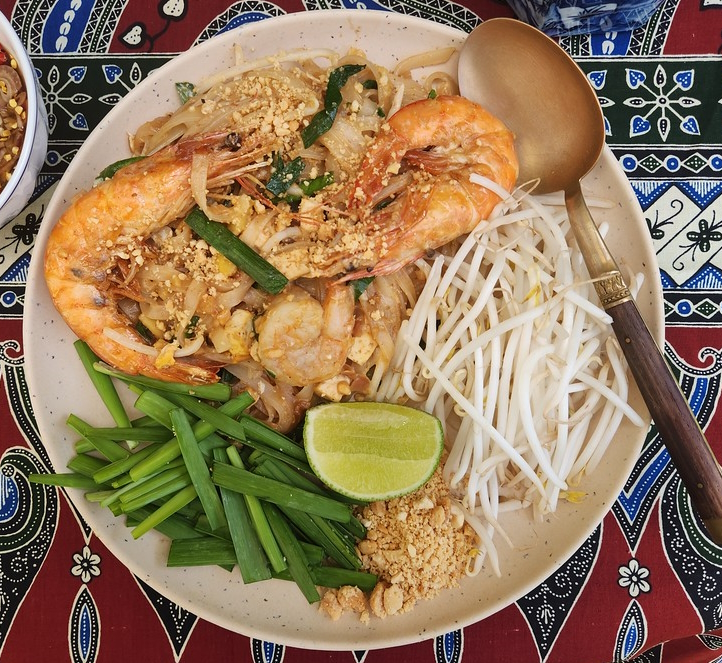Thank you for your interest in contributing to The San Diego Participant Observer. We are excited to work from writers who want to write about all the things that make San Diego such a wonderfully diverse and interesting city. We are also happy to have features and articles about interesting cultural phenomena from around the world. It is essential to the publishing process that writers follow our publishing guidelines and familiarize themselves with our editorial process.
- As Hemmingway once observed “The only kind of writing is rewriting”. Many novice writers believe that once they have finished their first draft they are almost done. I suppose there are popular writers like Steven King where this is true. However, for most writers, the first draft is only the beginning. Over the past two decades of editing articles by novice writers I can say that it is not unusual for unseasoned writers to be shocked by the editorial process. The process it is not for the faint-hearted. It is not uncommon for the process to be rather lengthy if there is no necessary deadline involved. If an article has a hard deadline (like when writing about a current event), it is possible that someone else (usually me, but not always) takes over the piece and re-write or modify it in order to meet a deadline. Most of what we publish does not have hard deadline. Writers often have to write multiple drafts, and on a rare occasion, completely re-write a piece. In other words, patience and dedication to improvement, and openness to criticism (specific to writing) is required.
- We write for the general public. I myself am a very good academic writer. However, writing for the general public is harder than academic writing. Articles need not be “dumbed-down” (indeed they should not be) but they must be written using common words, free of jargon and assuming that readers know things that only experts really do. It’s a challenge even for me and I’ve been doing this successfully for quite some time. Another thing to note is that articles written for the general public are constructed precisely opposite to academic writing. In academics, one builds a writing work brick by brick until one reaches a conclusion. In popular periodicals one’s conclusion comes first and then the details that led to that conclusion are filled in. This is known as the “inverted pyramid”, it came about for interesting historical reasons related to movable type, but still holds sway due to the reading habits of modern newspaper and magazine readers.
- We are not a good place for people who have been taught (and this is common) in creative writing classes that their writing should reflect their voice and personality. Having a distinctive style that is appealing is fine, but we hardly ever write opinion pieces and if a reader ends up knowing more about the person that wrote an article than they learn about the subject or topic at hand, that is a problem. We write about other people and how they see the world more than we write about ourselves. Articles laced with opinion and casual personal observations are not consistent with our mission or style.
- Editorial communications must be frequent and open. In one case a young writer was assigned to write an article about the Washington School in Little Italy because I had learned that the school was robustly cross-cultural in its approach. However, they had recently changed the focus of the school to STEM education, but this was not shared with me and the writer continued to write an article about the school. She was extremely upset when she shared the first draft and I told her we couldn’t publish the article because it wasn’t in any way relevant to our mission. Over the years, on thankfully rare occasions, people have worked on articles based on other situation that had abruptly changed. Any way the upshot is to be in constant communication and realize on thankfully rare occasions we can decide to not publish something even though it is well-written.
- Our goal is to publish informative and interesting articles that fit with our mission to promote greater cross-cultural awareness, understanding and engagement. Quality is always favored over speed unless some outside condition requires speed (usually the timing of an event).
- Article Length: Many writers ask about “word counts” which they were subjected to in college or had to follow when writing for newspapers. We favor concise writing, but “digging into a subject” is appreciated. Our feature articles range from 600 words to 5,321, averaging 2400 words in length with a median of 2200 words. Articles should be concise and to the point, article length is contingent on the nature of the subject, not some arbitrary word count.
- Topics, article proposals and expectations must be editorially cleared before work commences. These must be submitted in writing; verbal communications are insufficient. There is a high probability that articles submitted without prior editorial engagement will not be accepted.
- We are interested in articles that describe, explain, expound upon, and celebrate local and international cultural phenomena.
- In addition to promoting cross-cultural awareness and understanding we also seek to promote cross-cultural engagement. Each article should enable a reader to take some sort of action. To visit a place, enjoy a festival, listen to a new style of music, donate or volunteer or take some sort of action that addresses a problem.
- Submissions need to be free of ethnocentric biases and should avoid like the plague cultural stereotypes. Being exceptionally sensitive is a good thing. It is important to avoid implicit or explicit comparisons that may denigrate other people's cultures, put yourself in their shoes.
- Who, What, When, Why and How are actually not just a cliché. They are essentials of journalism, important questions that need answering.
- Wisecrackin’, pun-filled, sarcastic, stream-of-consciousness and/or cute writing is not favored unless it is really good (as in Dorothy Parker or Oscar Wilde good).
- Articles must focus on “Things Cultural.” While it is true that almost anything can be claimed to be cultural, some things are more cultural than others. Articles on disasters, crimes, war, politics, economic conditions and environmental concerns are not sought unless there is a very significant cultural focus to the article.
- Articles should aim for a 10th grade reading level. The most important thing is that the writing is CLEAR. For a good discussion of this point visit: http://blog.case.edu/webdev/2007/03/28/writing.html “Writing to be understood by your audience
- Copyright to all articles published in the Participant Observer belongs to the Worldview Project. To republish an article in any other publication or media, prior written permission must be obtained from the Worldview Project.
- There are many good (and thankfully concise and inexpensive) guides available for learning more about writing in general and article and features. We suggest:
- Elements of Style by Strunk & White
- The Elements of Online Journalism by Rey G. Rosales
- How to Write Articles for Newspapers and Magazines by Dawn B. Sova
- The Associated Press Guide to News Writing by Rene J. Cappon
Editorial Policies and Procedures:
- For Participant Observer articles we employ the Associated Press Stylebook and Libel Manual. If the usage or style issue is not covered in the APSLM, we refer to The Chicago Manual of Style. Our reference dictionary is the American Heritage Dictionary, College Edition (which is wonderful!). These reference works determine all matters of styles.
- Editors need to know where authors got their information be it from personal interviews (who and when), other published sources, personal observations, written communications etc. It is the author’s responsibility to provide such sources to the editor.
- Embrace the possibility of one or more rewrites and many revisions.
- Plagiarism is a mortal sin and deservedly so. Broadly speaking, plagiarism is presenting other people’s work or scholarship as your own. Unlike paper newspapers, footnoting and referencing is easy to accomplish in the Participant Observer; you may use this ability generously, within reason. The Worldview Press has a zero-tolerance policy toward plagiarism.
- Even with first drafts, authors should offer the courtesy of spell checking and checking for obvious grammatical and syntactical mistakes before the drafts are sent to the editor.
- Editors have broad discretion in suggesting re-writes and revisions, but it is a collaborative process and authors should (in dulcet tones) make their opinions known. We want everyone involved to be pleased and proud of what we publish.
- Typically articles, reviews and features are published on the first Friday of the first full week of each month. The deadline for completing articles is one week before the publication date.
- Article Deadlines: With respect to article deadlines there are three types of articles: a. Topical articles: These articles are connected to recent events and issues that may be ephemeral in their impact. Examples are articles on non-repeating events, on people who are in San Diego for a limited period of time, for issues that are a pressing concern to many individuals. For topical articles, the editorial process can take anywhere between one week and two months, depending on a variety of conditions.
- Time-Dependent articles: These are usually articles based on annual events. The editorial process can take a bit more than a year for some of these. If you want to write an article on the Dragon Boat Race, it is best to write the article based on research done at the previous race. That way the article can be published before the event.
- Time-Independent Articles: For these articles about more or less permanent or long-lasting cultural phenomena, or about people who are not going anywhere soon, the editorial process should generally take one to three months depending on the length of the article and the complexity of the topic.
How to get started, what to do next: - Make a proposal to the Sr. Editor about the article you wish to write. Although this can initially be done verbally, no further action should be taken until the proposal is formalized in writing (email is fine.)
- The following needs to be communicated in the proposal:
- The specific topic of the proposed article
- The expected date of a first draft submission.
- The sources that will be consulted, who will be interviewed, where will you visit.
- The overall point or goal of the article.
- After you receive a confirmed agreement on the proposal and any modifications to it (again in writing) you may proceed to researching and collecting information for your article.
- Before you submit your first draft, you should tell us if you are encountering any serious problems with obtaining permissions, information or writing. Additionally, it is a good idea to keep your editor apprised of your progress on a regular basis.
- In a timely manner, inform us of any support needs you have. Comp tickets (if obtainable), business cards, letters or the use of one of our photographers.
- Submit your first draft. You should receive a confirmation of our receipt of your article within 48 hours.
- A written response to your first draft should normally be within one week to two weeks. Please be patient.
T.J. Johnston-O'Neill









